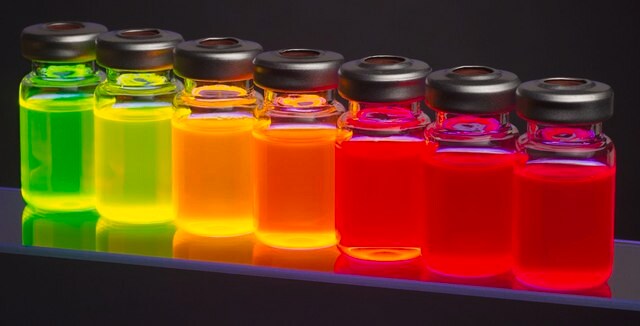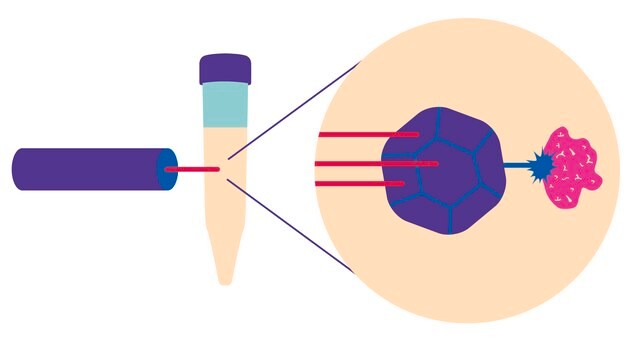900238
CdSe/ZnS core-shell type quantum dots
amine functionalized, fluorescence λem 600 nm, 4 μM in 10 mM PBS
Synonym(s):
Fluorescent nanocrystals, QDs
Sign Into View Organizational & Contract Pricing
All Photos(1)
About This Item
Linear Formula:
CdSe/ZnS
UNSPSC Code:
26111700
NACRES:
NA.23
Recommended Products
Quality Level
form
dispersion
λmax
585 nm
fluorescence
λem 600 nm
λem 600 nm±10 nm, quantum yield >50%
functional group
amine
storage temp.
2-8°C
Looking for similar products? Visit Product Comparison Guide
Related Categories
General description
Reactive group: Amine.
Application
The amine functionalized CdS/ZnS or CdSe/ZnS quantum dots (QDs) find applications in bioimaging and biosensing. The three main conjugation approaches reported in literature are conjugation using glutaraldehyde as a linker, conjugations with carboxylic acid containing molecules by using 1-ethyl-3-(3-dimethylaminopropyl) carbodiimide (EDC) coupling, and direct conjugation with isothiocyanates bearing molecules.
Legal Information
Product of Ocean Nanotech, LLC.
hcodes
pcodes
Hazard Classifications
Aquatic Chronic 2
Storage Class
12 - Non Combustible Liquids
wgk_germany
WGK 3
flash_point_f
Not applicable
flash_point_c
Not applicable
Choose from one of the most recent versions:
Already Own This Product?
Find documentation for the products that you have recently purchased in the Document Library.
Kumar P, et al.
Sensors and Actuators B, Chemical, 202, 404-404 (2014)
Jian Wei Tay et al.
Scientific reports, 4, 3918-3918 (2014-01-30)
Phase distortions due to scattering in random media restrict optical focusing beyond one transport mean free path. However, scattering can be compensated for by applying a correction to the illumination wavefront using spatial light modulators. One method of obtaining the
Lily Yang et al.
Small (Weinheim an der Bergstrasse, Germany), 5(2), 235-243 (2008-12-18)
Epidermal growth factor receptor (EGFR) targeted nanoparticle are developed by conjugating a single-chain anti-EGFR antibody (ScFvEGFR) to surface functionalized quantum dots (QDs) or magnetic iron oxide (IO) nanoparticles. The results show that ScFvEGFR can be successfully conjugated to the nanoparticles
Kavitha Pathakoti et al.
Journal of environmental sciences (China), 25(1), 163-171 (2013-04-17)
Quantum dots (QD) nanoparticles have been widely used in biomedical and electronics fields, because of their novel optical properties. Consequently it confers enormous potential for human exposure and environmental release. To increase the biocompatibility of QDs, a variety of surface
Our team of scientists has experience in all areas of research including Life Science, Material Science, Chemical Synthesis, Chromatography, Analytical and many others.
Contact Technical Service





